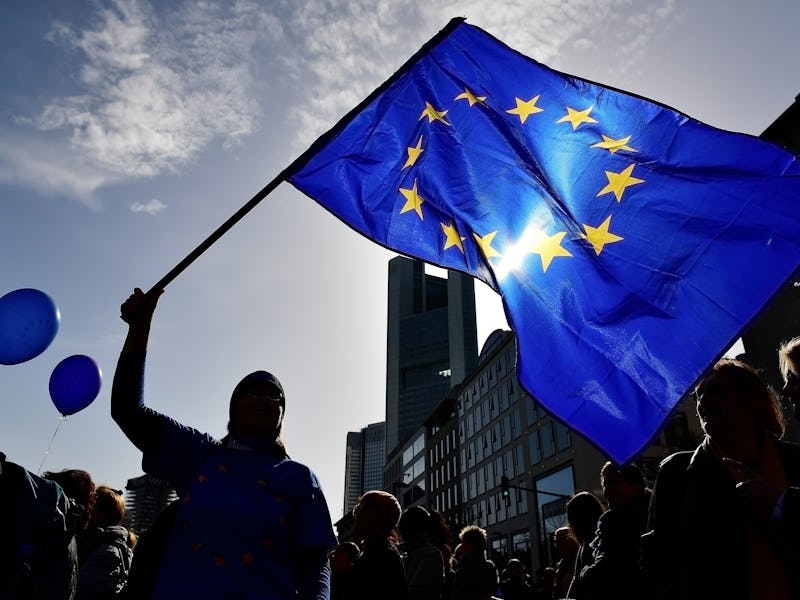Bitcoin Owes its All-Time High Value to Global Unrest
Well, there's one thing techies can thank Trump for.

The price of bitcoin has yet again hit a new all-time high, increasing by more than $200 since the market opened on Monday to exceed $2,260 by midday on Tuesday. Faced with explaining why the price of a single bitcoin continues to balloon beyond expectations, many are looking to the global political situation. In the bitcoin world right now, the emerging conventional wisdom is that when it comes to stability, the world’s loss is bitcoin’s gain.
“Assets” are just places to store your money as safely as possible. This can mean buying gold, or real-estate, or even just making an investment through the bank, but it always involves changing money into something with a greater expectation of gaining or maintaining its value. Obviously, the ascendant price of bitcoin and many other cryptocurrencies (collectively called “altcoins) is driving interest through sheer potential for profit — but take a look at how bitcoin has reacted to recent episodes of global unease, and it’s clear there’s a lot more going on than simple bandwagon-jumping.
Last year, when the UK was considering whether to vote to leave the E.U. (the so-called “Brexit” vote) bitcoin prices responded directly to the perceived threat of a successful UK exit. In the weeks leading up the referendum in late June, bitcoin prices surged more than 47%, but they also lost much of this when pre-vote polling suggested that Britons would probably choose to stay. Nobody knew what the E.U. would look like without the U.K., and nobody knew what the world would look like without the E.U. — and so, fewer people felt comfortable having their wealth tied up in a system they perceived to be in danger of a major downturn.
The worries don’t have to be that specific to effect whole economies, though. When Donald Trump took office last November, the world also reacted with a reflexive fear of the unknown and, once again, bitcoin benefited. Between November 2016 and January 2017, bitcoin surged almost $300 due to widespread fear about coming global instability — and then fell just as dramatically due to a sudden increase in confidence in the Chinese yuan.
The world had decided that America was becoming a less stable place to park money, and that China was becoming a more stable one; in a very real way, this caused a portion of the American economy to move to bitcoin, and a portion of the bitcoin economy to move to China.
So, while a huge proportion of the modern rise in bitcoin price can be attributed to its full or partial legalization in Japan and Russia in particular, it’s worth considering why those legal changes seem to matter so much to investors. In Russia, the decision to allow cryptocurrencies came amid a huge investigation into corruption in the banking sector, meaning that many wealthy Russians with money in those banks had a motivation to escape the Russian economy and, via bitcoin and altcoins, the means to actually do it.
In short, the large-scale movement of value into bitcoin has most likely not occurred because you can now use it to buy things from Starbucks and Amazon.
Overall, there’s every indication of an inverse relationship between the value of cryptocurrencies like bitcoin, and global confidence in the world’s structures of economic power. It’s certainly not the only explanation for bitcoin’s price volatility, but it is a major contributor, and one that will likely drive quite a but of animosity from older, traditional economies.
If there’s a lesson to learn from all this, it’s that the best investment is the one everybody else is about to make.